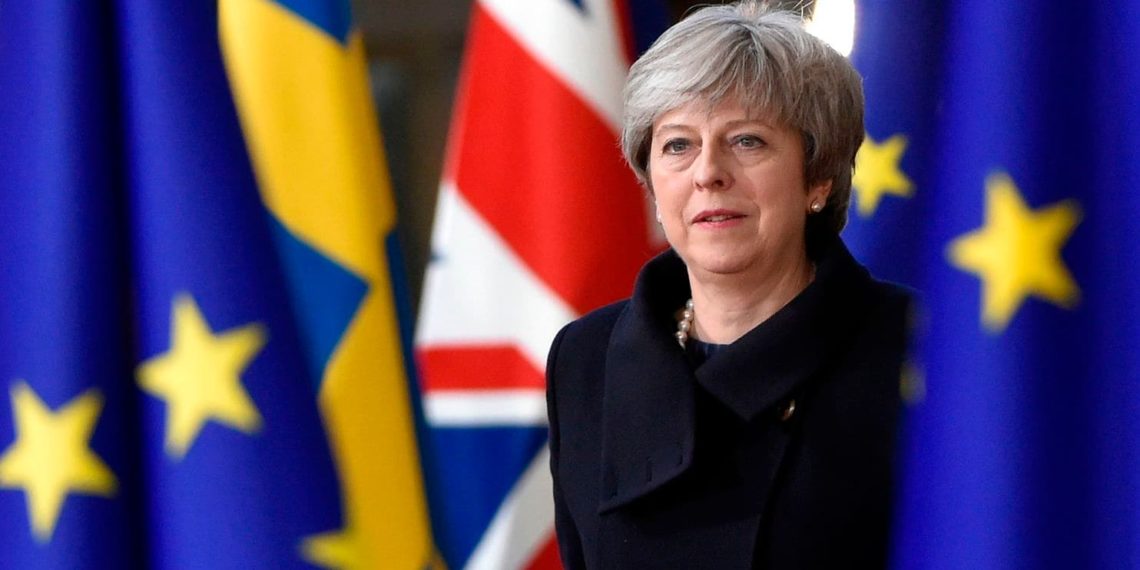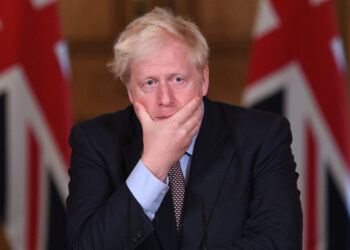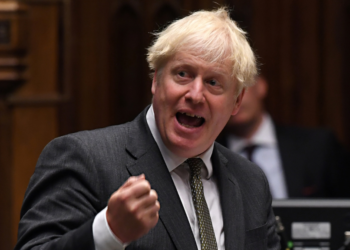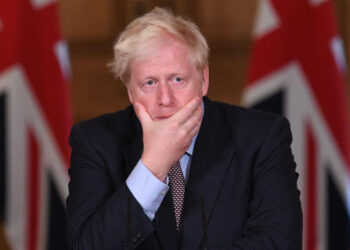Prime Minister Theresa May announced her resignation in an emotional address on Friday, ending a dramatic three-year tenure of near-constant crisis over Brexit and increasing the likelihood of Britain crashing out of the E.U. later this year.
May, who took charge in the aftermath of the 2016 Brexit referendum, was forced to make way following a Conservative mutiny over her ill-fated strategy to end Britain’s near five-decade membership of the European Union.
“It is and will always remain a matter of deep regret to me that I have not been able to deliver Brexit,” May, her voice breaking and close to tears, said outside her Downing Street office.
“It will be for my successor to seek a way forward that honors the result of the referendum.”
The 62-year-old leader said she would step down as head of the Conservative Party on June 7.
She will remain as prime minister in a caretaker role until a replacement is elected by the party before July 20.
The leader of the party, which won the most votes in the last election, automatically becomes prime minister.
WATCH: UK Prime Minister Theresa May's full announcement that she will resign. https://t.co/xmqMc0oAqS pic.twitter.com/KtcmoQhMQH
— The Hill (@thehill) May 24, 2019
Humiliating Spectacle
She will be among the country’s shortest-serving post-WWII prime ministers, remembered for presiding over one of the most chaotic periods in its modern political history.
May was pushed into the humiliating spectacle of a hastily arranged resignation announcement following a meeting with the Conservative Party’s committee chief in charge of leadership elections.
She had previously vowed to step aside once her unpopular E.U. divorce deal had passed parliament, and this week launched a short-lived bid for lawmakers to approve it in early June.
MPs have rejected the agreement she struck with E.U. leaders three times, brutally weakening May on each occasion.
‘Dangerous Phase’
With her resignation, the manner of Britain’s withdrawal from the bloc appears more ambiguous than ever.
The country has already twice delayed its departure and the possibility is growing it will leave without a deal on October 31, the extended deadline agreed with Brussels.
Spain said a no-deal departure now appeared “near impossible to stop” while Irish Prime Minister Leo Varadkar warned the Brexit saga was entering “a phase that may be a very dangerous one for Ireland.”
A spokeswoman for the E.U. Commission said May quitting changed nothing in negotiations.
The pound wobbled after she spoke, as analysts said it amplified uncertainty.
“The prime minister’s resignation also increases the risk of a no-deal Brexit,” said Sarah Carlson, of Moody’s.
‘Misjudged the Mood’
May was under rising pressure to resign following months of Brexit-fuelled political paralysis, which intensified following disastrous results in the May 2 English local elections.
The Conservatives are expected to fare similarly badly in this week’s European Parliament elections when results are announced Sunday.
“Politically she misjudged the mood of the country and her party,” said Nigel Farage, whose new far-right Brexit Party is predicted to win the contest in Britain emphatically.
May’s latest effort to force through her despised deal, which included giving MPs the option of holding a referendum on it, proved her final undoing.
The move prompted a furious reaction from Conservatives – including cabinet members.
Her departure will kickstart a Conservative Party leadership contest -already unofficially underway – that is expected to encompass more than a dozen candidates and favor an ardent Brexiteer.
Tory MPs will hold a series of votes to whittle the contenders down to a final two that will be put to the party’s more than 100,000 members.
Former foreign secretary and gaffe-prone Brexit cheerleader Boris Johnson is the membership’s favorite, but numerous Conservative lawmakers are thought to hold serious reservations about his suitability for the top job.
Johnson, who has repeatedly said Britain should not fear a no-deal Brexit, thanked May for her “stoical service.”
“It is now time to follow her urgings: to come together and deliver Brexit,” he said on Twitter.
‘No Legacy’
May was the surprise victor in the 2016 leadership contest to replace then prime minister David Cameron after he quit following the E.U. referendum.
Despite having campaigned to Remain, she embraced the cause with the mantra “Brexit means Brexit.”
However, the decision to hold a disastrous snap election in June 2017, when she lost her parliamentary majority, left her stymied, as the main opposition Labor party surprised many and won handily.
Her dismally dysfunctional government saw 36 ministerial resignations – a modern record.
The only consistency in Theresa May's career is her animosity towards migrants. pic.twitter.com/4ZXn4Ar4gC
— Owen Jones (@OwenJones84) May 24, 2019
May will leave office without any significant achievements– other than her bungled handling of Brexit, according to political analysts.
“She doesn’t really have a legacy,” said Simon Usherwood, of the University of Surrey.
“I think anybody in her position would have had great difficulty.”
Others were more brutal in their assessment.
“It was only an impossible job because she made it one,” said Tim Bale of Queen Mary University of London.
























